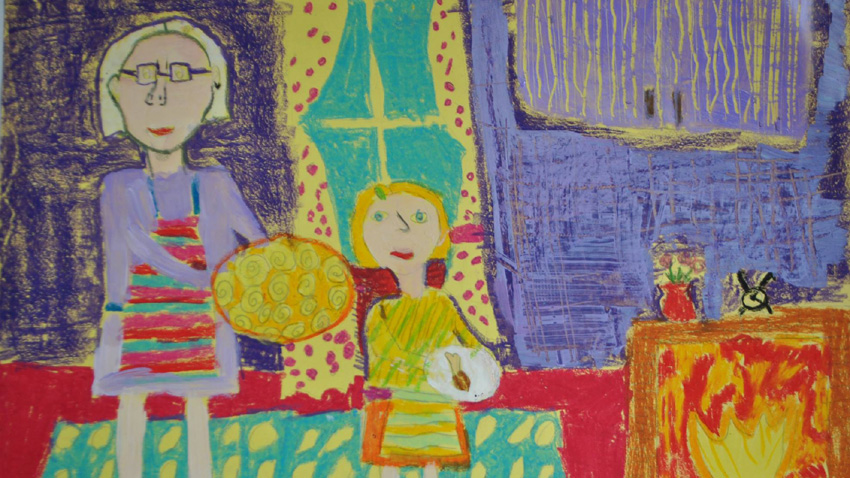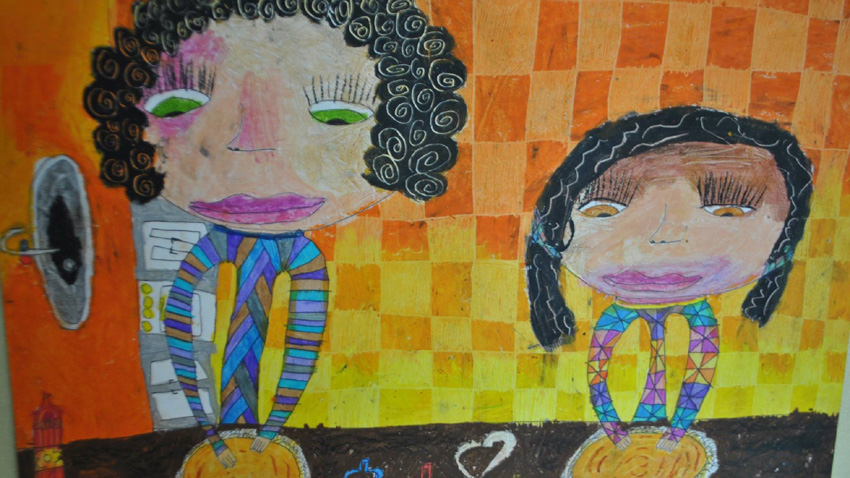Blazing colours, sparkling eyes and lots of smiles - this and much more is there to be seen in the hundreds of drawings sent by children from all over the country for the “Granny’s recipes” competition.
The competition is organized for the seventh year running by the Association for the Development of Arts and Crafts- 7 (ARIZ-7) which endeavours to track down and popularize Bulgarian gastronomical tradition. Actually “Granny’s recipes” is not a cookery contest, it is a showcase for children’s creativity. With their verses and drawings the children demonstrate their love and affection for the older members of their family. And as the contestants are young and cannot cook by themselves, at least not yet, the aim of the competition organizers is to turn their attention to gastronomic tradition, to traditional Bulgarian food made at home in different seasons.
All children who applied for the contest will receive a citation and some of their works will go on tour in summer. They will be accompanying the “Colourful fare of my town” gastronomy travelling festival that will go to different towns across the country.
“Our aim is to make the young authors feel respected and proud of their work,” says Marieta Nedkova who represents the organizers.
The “Granny’s recipes” competition is taking place in conjunction with the National Children’s Palace and is on the extracurricular calendar of the Ministry of Education and Science. The organizers usually receive some 2,000 drawings sent from all corners of Bulgaria. There is no restriction on the number of drawings each participant can send. The drawings compete in different age groups – from 5 to 14. Interest in the contest is displayed by whole schools and art clubs.

“We highlight the bond between cookery, tradition and rituals connected with food. We endeavor to draw their attention to important issues connected with a healthy diet,” says Marieta Nedkova and adds:
“Many talented children take part in the competition. There are art clubs that have been sending their works regularly. Children make their drawings and sometimes send photographs of their grannies or write us what they are like. That was how the idea came about to include verses in the contest. Our aim is not so much to appraise their work as to popularize the idea of food and its bond with family tradition. From the children we learn how to lay the table at home, what relations are like in the family. Traditions change and evolve. Life in the big city has altered them and they are no longer what they used to be 30 or 50 years ago. But there is one thing that has remained unaltered – all children love their grandmothers. They can’t wait to go and see their grandparents because gran will always give them something delicious to eat and will hear them out. They will cook the food, welcome their grandchildren into their homes but it is meals that bring families together. More and more young people have been showing an interest in ancient tradition. They want to learn more about how the food is cooked but also what messages it conveys. For example ritual loaves of bread have been taking pride of place at table on most feast days. They are baked on various occasions, given out to friends and neighbours, eaten with salt or honey. Children find out about these traditions in their families, put them to memory and then start to observe them and comprehend their meaning.”

Tradition is passed on from generation to generation, with the older family members teaching the youngsters. “There is no tradition that can be taught or learnt from books,” says Marieta Nedkova:
“Tradition is something handed down from person to person. Children do what they see done in their families, at school, in their community. That is why our Association for the Development of Arts and Crafts is particularly mindful of the school as an educational institution where children spend a lot of their time.”
English version: Milena Daynova
The annual human rights awards Human of the Year will be presented for the seventeenth time at a ceremony today. The event takes place on the eve of International Human Rights Day - 10 December. The awards have no monetary value. Their purpose is to..
8 December is the day on which Bulgarian university students traditionally celebrate their holidays. The holiday is very popular in Bulgaria and often brings together not only current but also former students. The day was first celebrated in 1903..
Spicy means culture and Alexander Kyurkchiev - Sando, founder of a chilli pepper farm near Sofia and the first chilli pepper museum in this country, is sure of this. For the second year in a row he is organizing the Sofia Chilli Fest..
The fountain in the center of Bukata Garden, located near Madara Bath in Sofia, has been restored to its original form with the help of the Sofia..
Taekwondo athlete Kimia Alizadeh, who won a bronze medal at the 2024 Paris Olympics, supported the National Campaign Combating Violence Against and..
A good year for the Executive Agency for Bulgarians Abroad, in which everything was happening as it should. This is how the agency’s..

+359 2 9336 661
